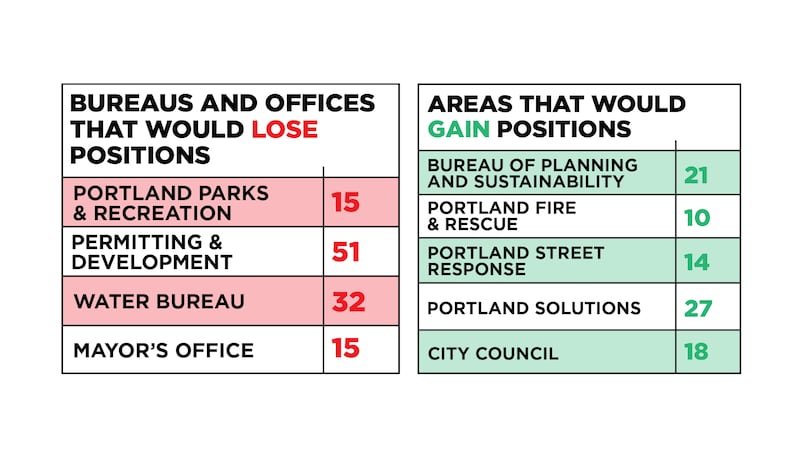Portland Mayor Keith Wilson is nothing if not an optimist. He won his office on a pledge to scale the summit where many mayors before him perished—ending unsheltered homelessness—and he has responded to talk of a Portland “doom loop” by pledging to create a “boom loop.”
The May 5 release of his proposed $8.5 billion budget felt like a vindication of his good cheer. After months of his deputies warning the city of budgetary carnage, Wilson managed to limit general fund cuts to just $26 million.
A closer look at the fine print, however, shows Wilson is basing that miracle on more faith.
The mayor achieved a balanced budget by proposing to increase fees for parking, utilities, parks facilities, rideshare services, and short-term rentals. He’s also crossing his fingers that Portlanders will vote later this year to double the existing Parks Levy, from 80 cents per $1,000 of property value to $1.60 per $1,000, to avoid potentially much steeper cuts to parks access and programs.
Wilson is also relying heavily on one-time and contingency funds to balance his proposed budget, and money from other governments like Metro, Multnomah County and the state—the last of which has not promised him anything. Nearly all of Wilson’s homeless shelter plan, for instance, which seeks to add 1,500 beds to the shelter system by the end of the year, would be subsidized by one-time funds from Metro and Multnomah County.
Still, the reality this week is far less dismal than initial projections by city administrators who, as recently as late February, forecast a $93 million general fund gap. (Skeptics would say that was an inflated number, as WW has previously reported.)
Wilson proposes that the city make cuts primarily to parks maintenance and the city’s permitting bureau. Other cuts would be made in equity, communications and human relations offices nested within individual bureaus in addition to some modest reductions to the city’s administrative layers.
Wilson avoided cuts in his proposed budget to Portland Fire & Rescue, the Police Bureau, and the Bureau of Emergency Communications, and actually recommends staffing up police and fire.
Beginning Wednesday, the 12 members of the City Council can begin discussing amendments to Wilson’s proposed budget. There will likely be strong debate whether public safety programs and personnel should be protected over parks maintenance and personnel.
But for now, here are the bureaus and offices from which the mayor seeks to cut the highest number of authorized positions. The numbers represented may include unfilled vacancies, that is, positions that are not currently filled. A second chart shows the divisions where the mayor proposes to add staff.
In total, the mayor’s proposal seeks to reduce the city’s personnel by 82 positions. Additional layoffs not included in the proposed budget are expected to begin in the fall.


